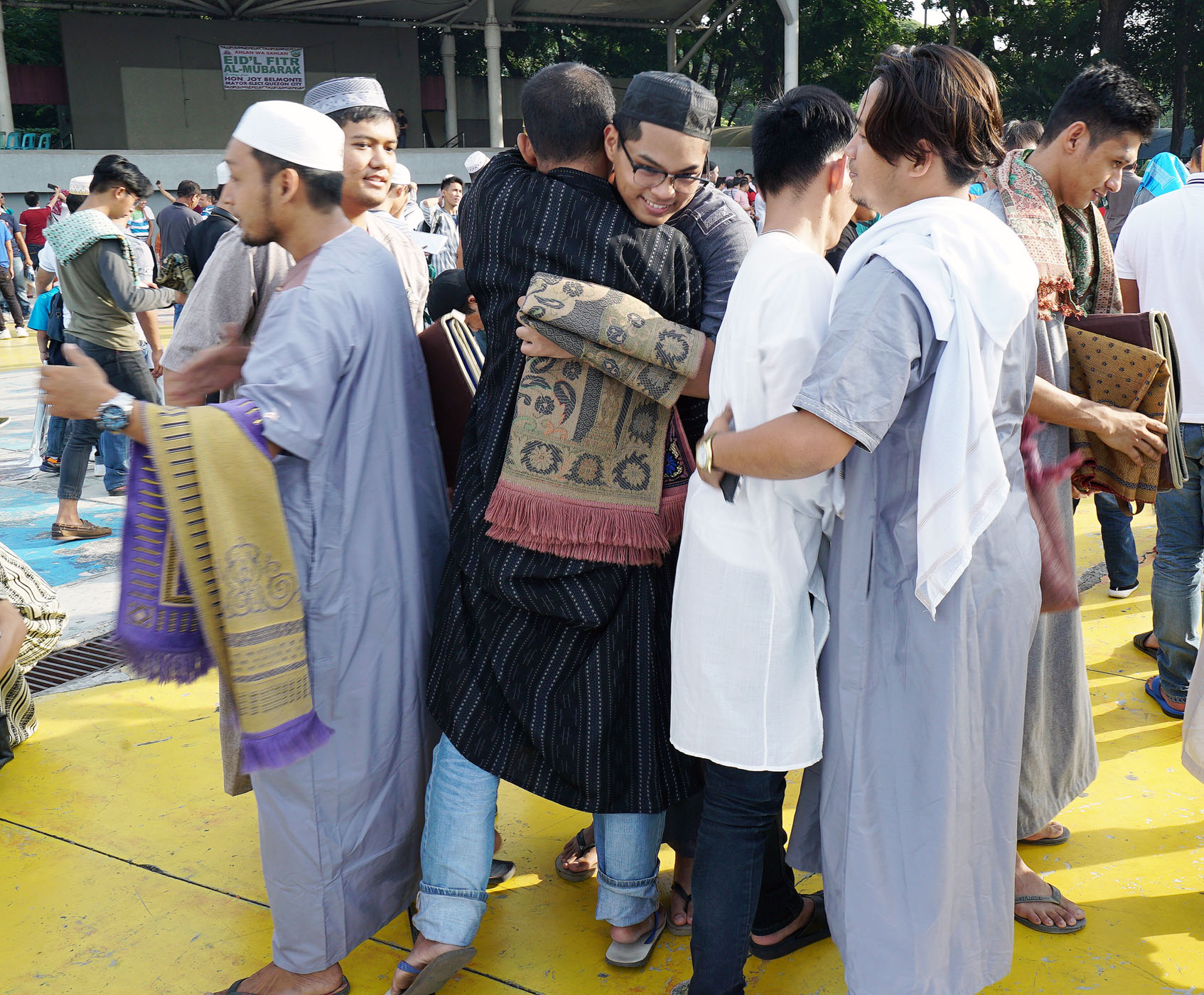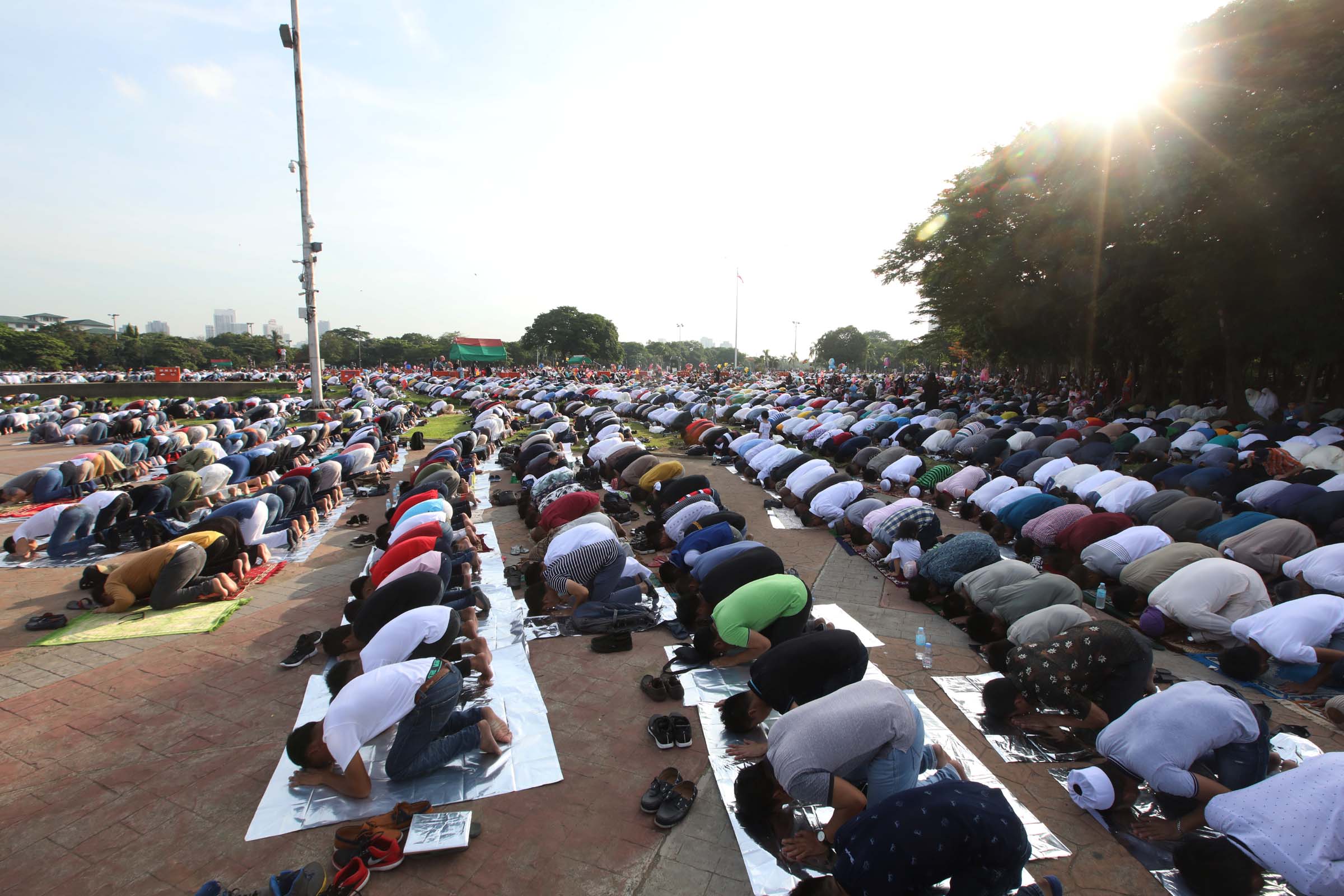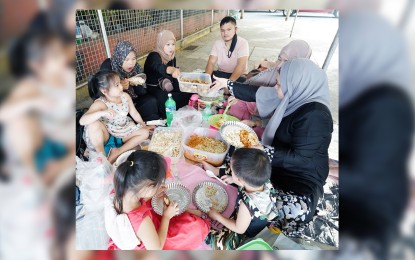


MANILA — Muslims around the world celebrate Eid al-Fitr or “the festival of breaking the fast”, the last day of the holy month of Ramadan.
In the Philippines, there are a lot of practices that Muslims observe or do during Ramadan.
Leebai Sinsuat Ambolodto, a faithful from Mindanao, says it is not merely just a tradition but a holistic fasting.
“Basically, it is refraining from eating [but in general], Ramadan teaches you to be more patient, be more disciplined,” she said, adding that she and her family wake up at 3 a.m. every day for a month to begin the ceremonies.
At the day of the Eid- al Fitr, the first sighting of the new moon, they gather together to celebrate.
It starts by partaking in communal dawn prayers, followed by a short sermon in mosques and open-air spaces and later move on to feasts and festivals.
People congratulate one another as they head home after Eid prayers. They spend the day visiting relatives and neighbors and accepting sweets as they move around from house to house. Children, dressed in new clothes, are offered gifts and money to celebrate the joyous occasion.
This is preceded by the giving of alms to the poor, or zakat, which is one of the five pillars of Islam.